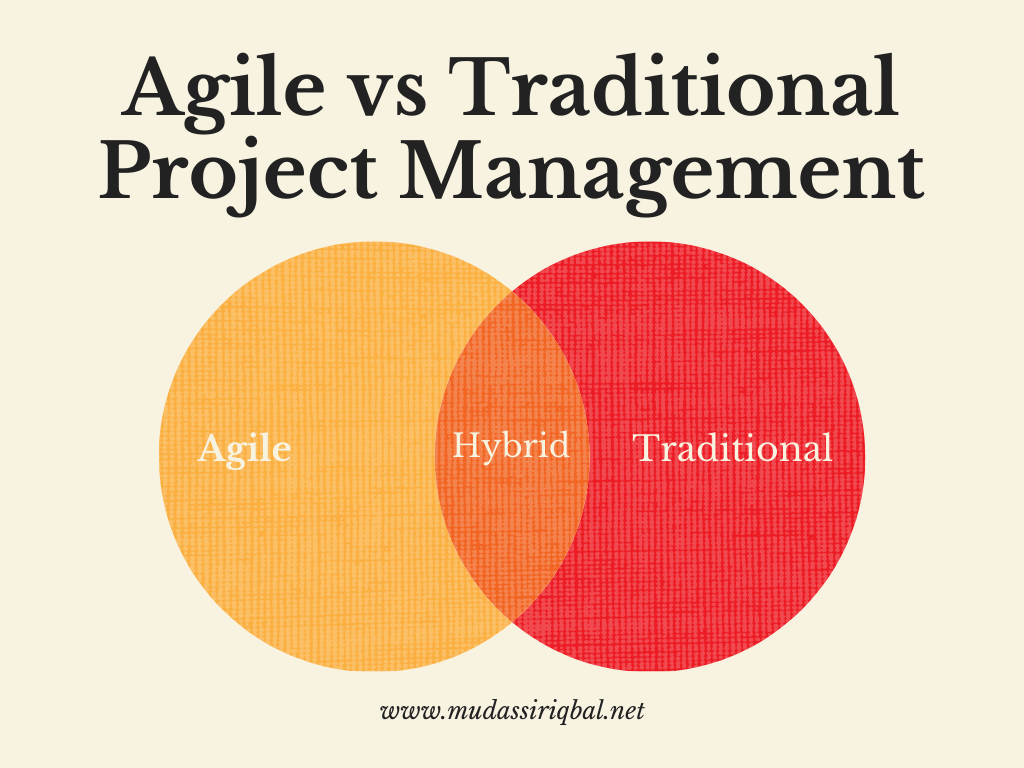In this modern, rapidly changing world, businesses rely on project management systems more than ever to run their operations as smoothly as possible. Project management methodologies such as agile and traditional help businesses achieve their objectives in an efficient manner. Agile project management, in particular, has gained massive popularity among project managers in recent years due to its increased flexibility and risk reduction. However, this does not mean that the traditional project management methodology is without its merits. To decide which is a better fit for your project, this article explores the two methodologies and their benefits.

What Is Traditional Project Management?
Projects dependent on the traditional project management methodology must be defined from the start. This methodology approaches projects in a linear and sequential manner. Each phase of the project follows a predictable sequence. Under this approach, projects occur in fixed stages with a set budget and rigid timeline. To properly implement this approach, project managers must implement impeccable planning and analysis during the project development stage. The Project Management Institute (PMI) defines the tools and techniques required for this methodology in the Project Management Body of Knowledge (PMBOK).
Benefits of Traditional Project Management
There are several benefits from employing the traditional project management approach to complete your projects.
Since the budget is fixed, it is very cost effective. The extent of the planning if this method eliminates any unforeseen project costs.
With every phase of the project planned before its execution, duties and expectations are clearly defined. As a result members of your team can work effectively without the need for the project manager’s supervision.
This methodology allows project managers a greater degree of control over the processes of the project. However, this also means they hold more responsibility for the outcome of the project.
What Is Agile Project Management?
Agile project management is an approach to project management that is rooted in collaboration. It prioritizes feedback from consumers as well as those from team members. As a result, the methodology is characterized by a tremendous amount of flexibility. The plan for projects using the agile project management approach is constantly evolving and adapting.
“The incremental approach of methodologies such as Scrum, Kanban, and Gantt to project management breaks up the processes into short sprints,” explains Joseph Garner, a tech writer. The project manager is constantly checking on the development of the project and making any necessary improvements. Clients are also updated frequently throughout the development of the project.
Benefits of Agile Project Management
The numerous benefits of the agile project management methodology makes it the preferred choice of many project managers under most circumstances.
As a framework, agile project management allows for greater flexibility. This means project managers and members of their team can adeptly respond to changes and developments throughout the project. Since project managers are highly involved throughout the process, they can easily adapt any necessary changes to ensure the delivery of the highest quality product or service.
Moreover, the agile project management methodology promotes transparency, collaboration, and communication. Team members are constantly aware of the progress of the project. They can brainstorm together and communicate processes directly to each other through a single channel.
“In addition to improving communication among the team, agile project management also improves the company’s communication with clients,” according to Danielle Peek, a PM blogger. This approach demonstrates to clients how much the company values their feedback by incorporating it into the finished product or service. Customers are also provided with updates throughout the process.
Is Agile or Traditional Project Management Right For Your Project?
Project managers who require adaptability and transparency for their projects will not go wrong with the agile project management methodology. Most projects will benefit from the enhanced flexibility and collaboration that this approach offers.
On the other hand, project managers should choose the traditional project management methodology if a project needs to be streamlined. Since it provides greater control over the processes, project managers might also want to use this approach for remote projects.
Conclusion
Both traditional and agile project management methodologies offer project managers many advantages. The right approach to managing your project depends on the project itself, your personal preferences, and your desired goals.



One thought to “A Comparison Of Agile and Traditional Project Management”
Pingback: Tools for Effective Communication - Mudassir Iqbal